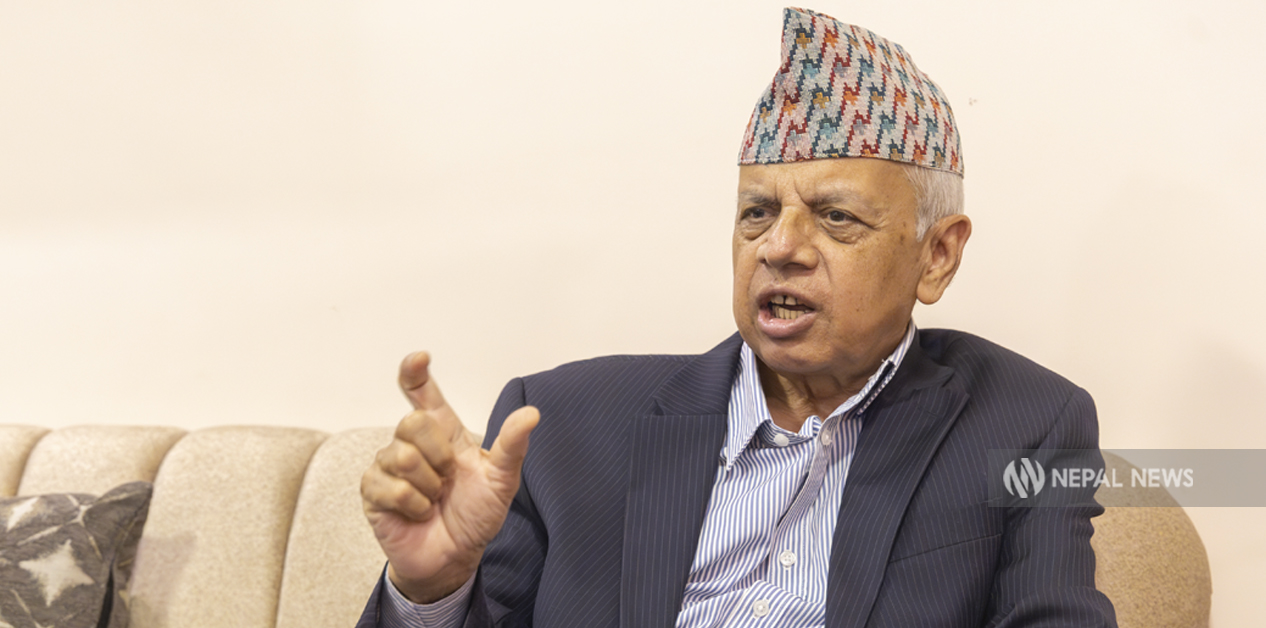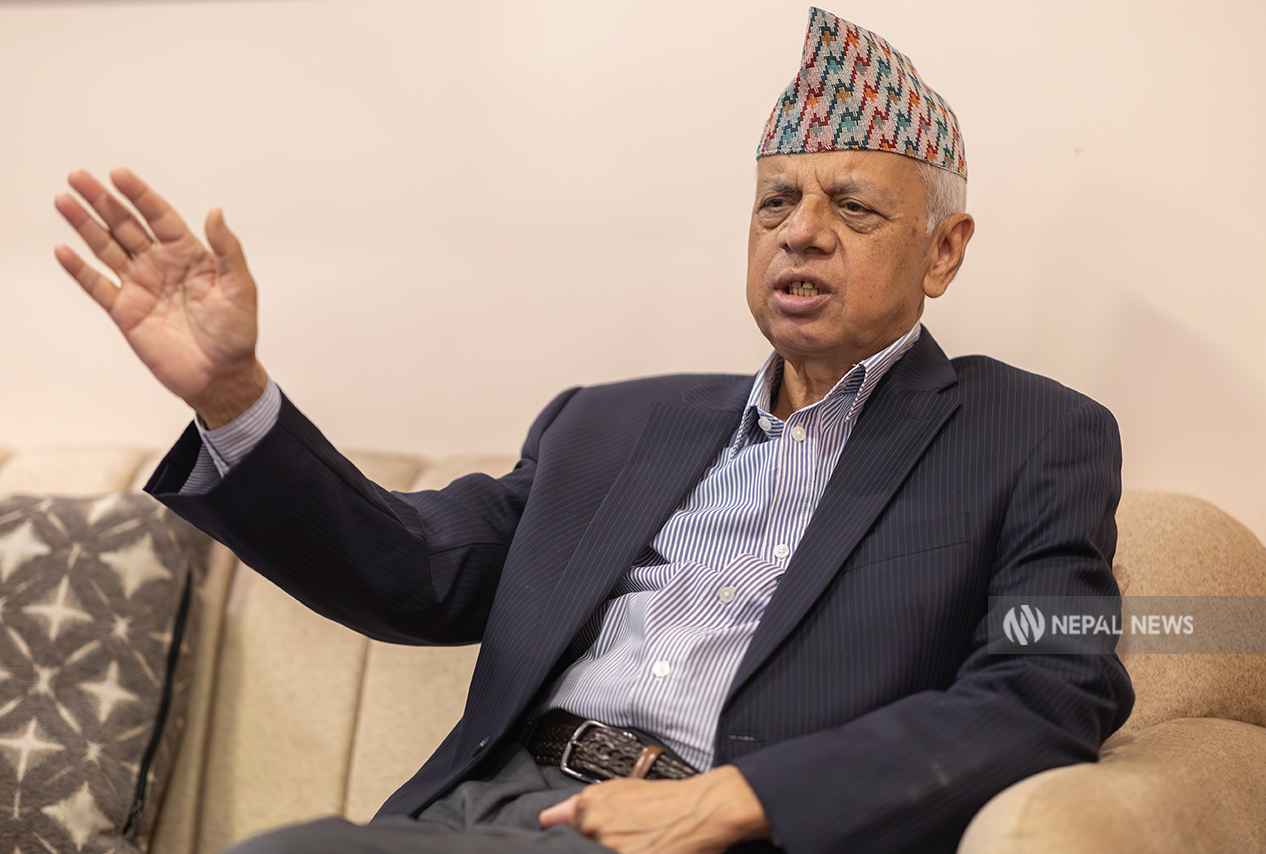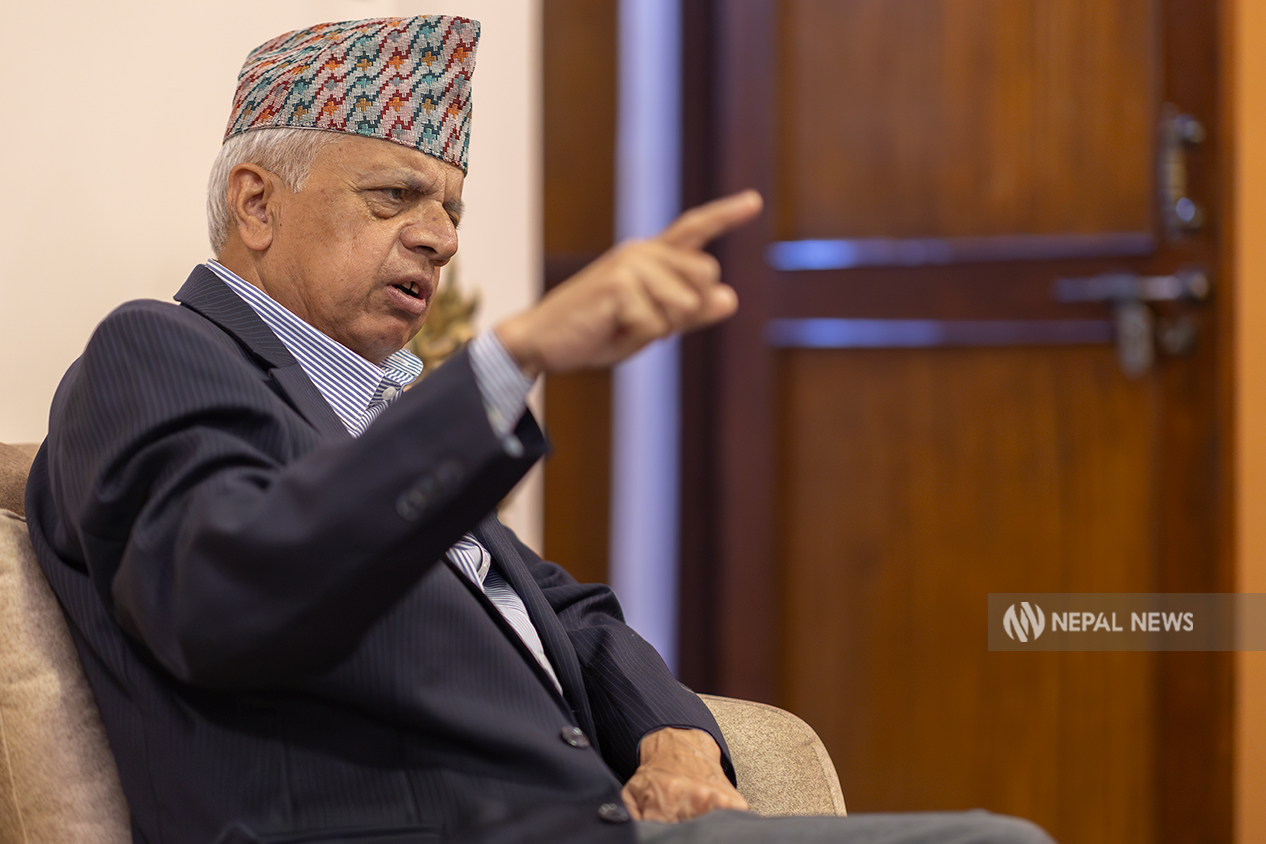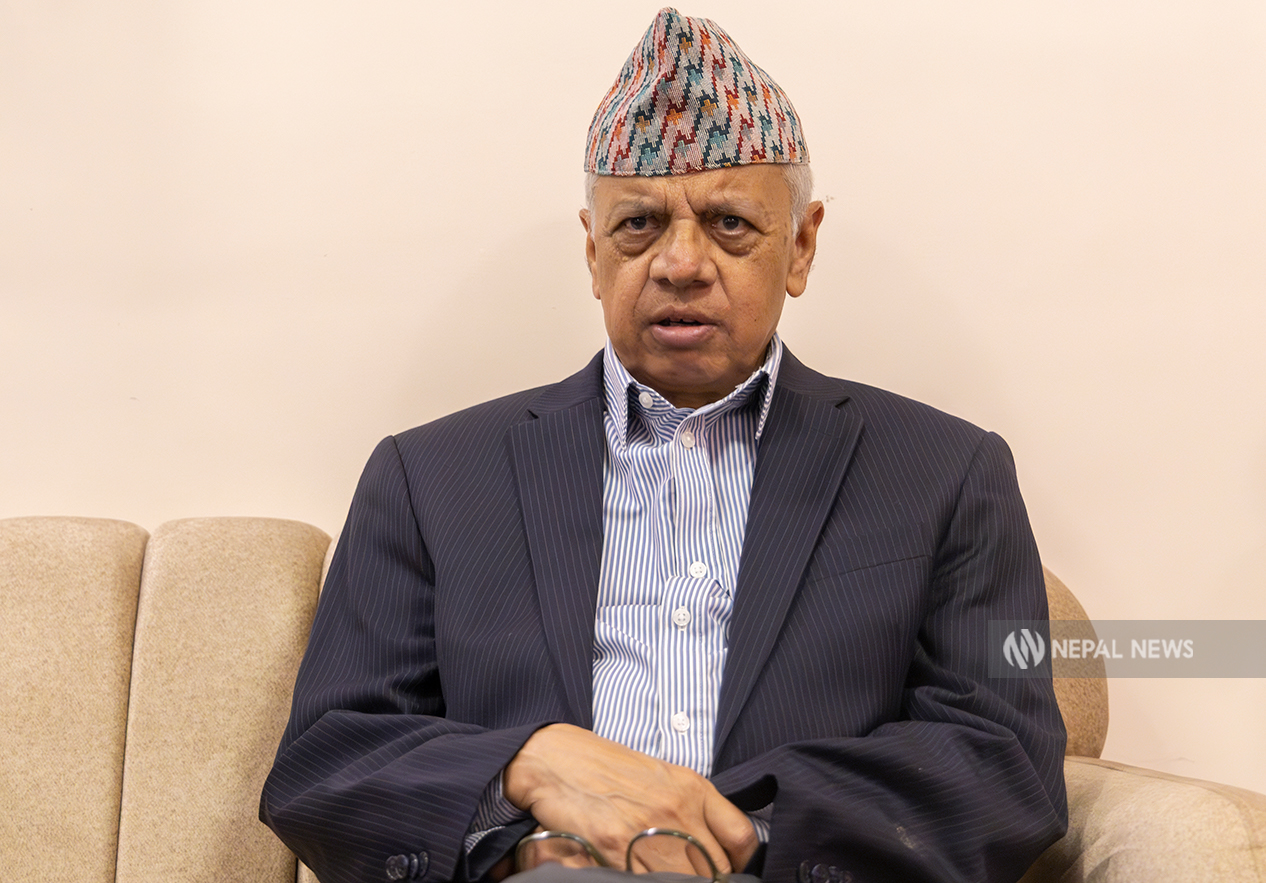
“Taking a matter to the Cabinet when the office or department head already has the authority to decide means shirking responsibility and attempting to cover up irregularities under the guise of a policy decision. This, in itself, constitutes misconduct”

KATHMANDU: Political party leaders often criticize that decisions made by the Council of Ministers are labeled as ‘policy decisions’ and thereby kept outside the scope of legal investigation, allowing large-scale corruption to occur.
During the monarchy, royal decisions were legally immune. In the democratic republican era, it is observed that leaders carried forward the old arrogance, exercised privileges, and undermined good governance.
Individuals holding public office are subject to investigation by the Commission for the Investigation of Abuse of Authority (CIAA) if they commit corruption. However, current legal provisions deliberately exempt those in power by keeping ‘policy decisions’ outside the scope of investigation.
What impact does this have on good governance and the rule of law? Focusing on the current practice of policy decisions and the legal framework, the following conversation was conducted with former Supreme Court Justice Ishwor Khatiwada before the shifting political context. Here are the edited excerpts:
There seems to be ongoing debate about whether policy decisions should be subject to investigation. What is your understanding of this?
I do not see any strong logical basis behind the various discussions that have taken place so far about whether policy decisions fall under corruption investigations, and to what extent such decisions should be exempted or not. Explaining them is one matter, but the substance is different. What the Constitution says, and what we understand, is that in a legal state, no one is above the Constitution or the law. Everyone is subject to the law.
The idea that people in certain positions cannot face cases or that no action can be taken against them goes against the fundamental values of the rule of law. It also contradicts the principle of equality. There should be no room for words like ‘but’ or ‘however’ in this context.
All citizens, regardless of the position they hold in the state, must equally adhere to criminal law. Anyone in any position of state administration must face consequences and bear responsibility for criminal acts.
Claiming special privileges is not allowed. Exempting a particular class from criminal responsibility is nothing but a lingering remnant of the old monarchy.

Former Supreme Court Justice Ishwor Prasad Khatiwada. Photo: Bikram Rai/Nepal News
Are you suggesting that the question of whether policy decisions should fall under corruption investigation is linked to the rule of law?
I have some curious questions for those who say that policy decisions should not be subject to irregularity investigations. Is there certainty that corruption does not occur in policy decisions? Are our policymakers free from corruption? Does making a policy decision allow someone to commit corruption? The answers to these questions are clear.
We have examples of corruption carried out under the guise of policy decisions. Corrupt practices have occurred from the level of drafting laws and regulations to the level of decision-making. Keeping policy decisions outside the scope of corruption investigations is harmful to good governance.
Top leaders of major political parties seem to disagree on whether policy decisions should be investigated for corruption. Debates are ongoing regarding the point in time from which a decision qualifies as a policy decision. Why is this happening?
Some may say this without understanding, while others may have rationalized it. After 1990, Nepal experienced both positive and negative developments. During the political transition, many officials in the state apparatus were holdovers from the Panchayat era, and the King remained in Narayanhiti Palace.
Everyone remembered the events of 1961. People in the upper levels of party politics may have been concerned about preserving the multiparty system against administrative control and unfair manipulations. Hence, by maintaining a belief that they must have immunity for the work they perform, they kept policy decisions outside the ambit of corruption.
Perhaps at that time, this was acceptable to some extent. But even now, although much water has flowed in the Bagmati, our representatives still carry the old mindset.
Our political leaders believe, “We are the ones who run the country’s governance; it is only a matter of rotation. We will reach the place where policy decisions are made. Once there, errors may occur in decision-making. Therefore, a safe path must be created.”
This belief has led to attempts to keep policy decisions outside the scope of legal action. In this attempt, some have tried to be a little generous, while others have sought the role of ‘His Majesty the King.’ Within this context, discussions about policy-related corruption have become entangled.

Former Supreme Court Justice Ishwor Prasad Khatiwada. Photo: Bikram Rai/Nepal News
Do you mean that even leaders in the republic want to keep policy decisions outside the scope of corruption investigation, similar to former kings, to remain above the Constitution and law?
Any attempt to create the equivalent of King within the law is contrary to the rule of law. It also violates the principle of equality. In a legal state, everyone should be treated equally, and all must respect and be devoted to the law.
If any class is given special privileges and kept outside the scope of criminal law, then the monarchy of the past also did the same! Is this the form of democracy we sought and chose? Yet, some people continue to cling to this notion of ‘policy.’ What is happening now is on the wrong path.
If we understand policy decisions and corruption separately, there is no problem that needs to be muddled. There is no need for excessive overthinking.
If lawmakers want to provide a reasonable and logical definition of what constitutes a policy decision, there is hardly any reason to object. But even if they do not, it does not fundamentally change the issue. Currently, there seems to be no logical basis for what is being heard in public discussions.
Can a solution be found by categorizing Cabinet decisions into different types?
Why differentiate at all? For what purpose should they be differentiated? All policy decisions are the same in nature. If a policy decision turns out to be wrong, it falls under the scope of corruption.
Corruption is a criminal offense, and anyone who commits it must be punished. Can corruption itself be called ‘policy’? The problem lies precisely here. Can someone commit corruption under the guise of policy decisions and then claim immunity? Decision-making must not be done by misconduct.
Decisions made in good faith without wrongdoing do not need the cover of being called a policy. Such actions do not fall under the scope of corruption. But even if the decision is good, can someone claim exemption if it involved taking bribes? Can one make a valid claim that “the result is good, so corruption should be excused”? No, corruption should not be excused under the pretext of policy or any other label.
What kind of law should be made to prevent the misuse of policy decisions?
Section 4(b) of the Commission for the Investigation of Abuse of Authority (CIAA) Act, 1991 states that the Commission will not investigate or take any action regarding policy decisions made collectively by the Cabinet or its committees, or judicial work of the courts.
This provision, which keeps policy decisions outside the scope of law, must be repealed. There should be no law granting immunity from corruption under the guise of policy decisions. Why should this provision exist specifically for corruption cases while exceptions for minor offenses are unnecessary?
Is the provision meant to allow corruption in policy decisions and to protect it from investigation? If not, then what is the reason for exempting policy decisions?
The reason for including such provisions in the law can only be truly known and explained by those who drafted them. They do not appear to have presented any logical justification. In short, the intention behind it is to protect oneself through misconduct. The arrogance of past kings’ practices remains, there is ambiguity in perspective, and the leader’s orders have become a blind rule.
There is also the desire to be like the King, along with a lack of trust and confidence in the existing state mechanisms for corruption investigation, prosecution, and judicial adjudication. This may be the psychology of those who argue that policy decisions should never be touched by investigations.

Former Supreme Court Justice Ishwor Prasad Khatiwada. Photo: Bikram Rai/Nepal News
It appears that the practice of policy decisions occurs in large contracts and procurement. Files that could be decided at the Joint Secretary level are sent to the Secretary’s table, who takes them to the Cabinet to make it a ‘policy decision.’ Is the law protecting policy decisions to prevent this misuse?
This is clearly a matter of administrative incompetence and mismanagement. The reason corruption has become institutionalized is also similar. When the office chief or department head has the authority to decide, taking the matter to the Cabinet means shirking responsibility and attempting to cover up improprieties under the guise of a policy decision.
Even if there was no ill intent, at least administrative incompetence is evident. Whoever is granted decision-making authority by law must exercise it themselves. Why push it up the hierarchy? It is like using the sacred cow’s urine to purify someone or something considered impure or taboo.
Such matters cannot be called policy decisions. Decisions of a routine administrative nature—appointments, transfers, promotions, contract approvals, issuance of permits—cannot be termed policy decisions, regardless of who makes them.
A peculiar maze has been created around the notion of policy decisions. The Rana rule ended, the Shah rule ended, but the mindset and legacy of how they positioned themselves in governance persisted.
During natural disasters or emergencies, the government must act immediately. Some argue that subjecting policy decisions to corruption investigation delays processes and increases harm. How do you view this?
Yes, policy decisions generally should not be considered corruption. Decision-makers may occasionally make mistakes, lack sufficient judgment, or have insufficient information, leading to flawed decisions.
Even judicial decisions can be overturned: a district-level decision may be reversed by the high court, and a high court decision may be reversed by the Supreme Court. Even within the Supreme Court, decisions by a full bench and a joint bench can differ. Such reversals do not in themselves constitute corruption.
Policy decisions are made by the executive branch that operates the state apparatus. Our priorities may differ, and the decision also involves the discretion of the official. These cannot be termed policy corruption. However, if the decision involves corruption, the person must be held accountable.
For example, matters such as imposing or increasing taxes are policy decisions and generally do not fall under corruption. But if the tax rate is set in collusion with a few major business houses to provide them undue advantage while gaining personal benefit, can this be excused as a policy decision?
Whether in policy or any other decision, bribery is never acceptable. Using the shield of a policy decision to escape accountability for taking bribes is not permissible.
We have seen that officials sometimes misuse power when they have authority. Even CIAA commissioners have been implicated in such practices. How should this be addressed?
You have to give the policeman a baton; otherwise, it is difficult to control thieves and robbers. But the baton in his hand is the state’s baton. Along with it, he must be given knowledge, judgment, and skill about where, to whom, when, and where not to use it. He must also operate within standards.
Once the problem is identified and the correct intervention is made, the issue can be resolved. Treating a foot wound with medicine for the head will not work. If someone misuses granted authority, there must be an effective and actionable mechanism to hold them accountable. No one is above the law. Anyone who commits corruption under the cover of legal authority must be held responsible. If procedures are strengthened, such problems can be solved.
This also requires integrity and competence. Currently, opportunities or responsibilities are given based on “ours,” while results are judged based on “good.” You cannot expect oranges from a pomelo tree. Nepotism and political division have disrupted governance and administration in the country.
Are you suggesting it is time to review the appointment process of CIAA commissioners?
Not just the CIAA; the entire Constitution needs review. It is necessary to review the state structure, composition of Parliament, election system, government formation, judiciary, CIAA, and other aspects. Regarding CIAA commissioner appointments, the appointing authority should first reflect on their own actions in light of the Constitution and law.
Most problems arise not from the Constitution, law, or policy, but from implementation. If we abandon the mindset of favoritism and focus on selecting the competent rather than “ours,” positive outcomes can be seen. Those who should contribute to strengthening procedures instead sabotaging them will inevitably produce negative results.
In the functioning of governance, there has been a temporary and convenience-oriented style. Weaknesses exist in strengthening the state’s administrative mechanisms. Compared to the past, administrative officials’ integrity, expertise, and capacity to stand firm on correct matters have been declining. Opportunism has found a place. This situation has arisen due to the political level itself.
Officials were neither provided a conducive environment nor seen with stability. Secretaries are transferred after only two to four months in one position. In such a scenario, when can one plan, and when implement? Shortcuts and half-measures do not produce satisfactory results.
The impact of this dysfunction has also reached the Commission for the Investigation of Abuse of Authority (CIAA). If the commission’s human resource management is not properly organized, then four or five commissioners alone cannot achieve much through their efforts. This inevitably affects the overall performance of the organization.